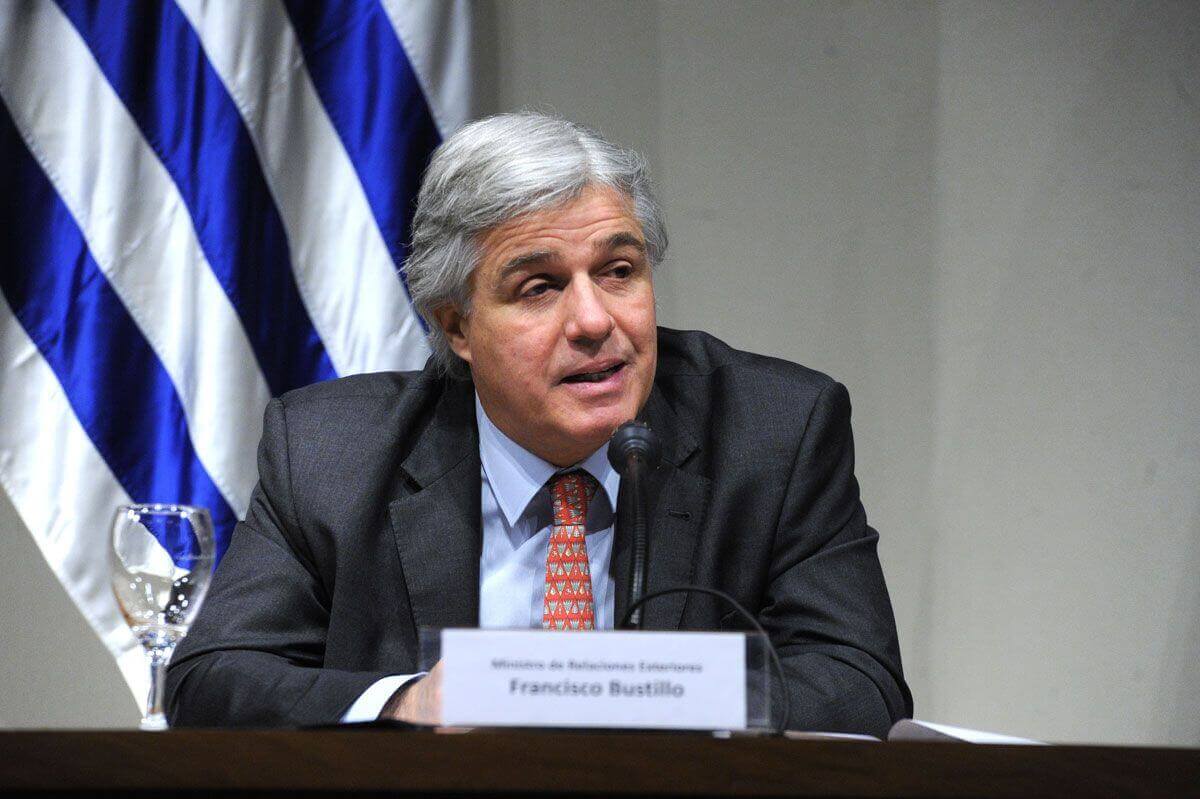Uruguay’s Foreign Ministry submitted a formal request to the Argentinian government that states its desire to resolve their ongoing spat over the pair’s divergent views on whether or not Mercosur should relax its stringent trade restrictions.
Uruguay and Brazil wish for the regional trading bloc to allow member states to enter into unilateral trade deals with non-member states and for the common external tariff to be lifted. However, Argentina disagrees and says that any deals made with non-members must involve all Mercosur states and that the common external tariff protects domestic industries.
Keeping this dispute in mind, Uruguayan Foreign Minister Francisco Bustillo sent a message to his Argentinian counterpart Felipe Solá in which he requested a meeting alongside their Paraguayan and Brazilian counterparts, who together make up the four permanent members of Mercosur.
In fact, on March 26, Mercosur held a virtual heads of state summit in which Uruguayan President Luis Lacalle Pou said that the bloc must be made “more flexible”. He remarked, “Obviously Mercosur does carry some weight, obviously its production carries some weight at the international concert, what should not and cannot be is that it is a burden, we are not willing to make it a corpse.” The Uruguayan leader added, “Our peoples, our people, in my case the Uruguayan people, demand from us opportunities to progress ... at different levels and this government feels that it has to respond to that cry of its citizens and responding to that cry means no harm against the interests of other peoples.”
However, Argentinian President Alberto Fernández, who is the current rotating chair of Mercosur, took offence to Lacalle Pou’s comments and said that Uruguay was free to leave the bloc, saying, “The truth is that we did not want to be a burden to anyone. The easiest thing is to get off the boat if that load is heavy. Let’s put an end to those ideas that help so little. We don’t want to be anyone’s burden. If we are a burden, let them take another ship, but we are nobody’s burden. It is an honour for me to be a part of Mercosur.”
That being said, Argentina now appears to have somewhat relented in its position. On Monday, Uruguayan newspaper El Observador reported that Buenos Aires had agreed to reduce tariffs and even remove them on 1,900 items that have been identified as having no impact on domestic industries.
Furthermore, in an interview with Spanish newspaper El País, Argentina’s Minister of Productive Development, Matías Kulfas, admitted that the Fernández administration is working towards resolving a “moment of tension” within the bloc. To this end, he said, “It is not true that Argentina refuses to reform Mercosur,” pointing to how Buenos Aires had agreed to remove tariffs on a number of imported goods. He acknowledged that there was a need to “modernise” Mercosur, but said that the idea that reducing tariffs would automatically transform the bloc is “pure ideological dogmatism”.
Kulfas said that Argentina was in a unique position to comment on the dangers of liberalising the bloc too fast, saying, “In Argentina we have experience with these things, at various times in our history we made ideological decisions, we reduced tariffs and we opened our financial structure, and we ended up with a crisis in the balance of payments. That is why we are cautious.”
Nevertheless, he said that he “bets” on Mercosur members working out their problems through “dialogue”, saying, “In any society there are good and bad moments, and in Mercosur this is a moment of tension.” However, he conceded that finding a mutually agreeable approach would “take time”.
The meeting request submitted by Uruguay appears to suggest that Montevideo is also seeking a resolution to this dispute. Uruguay’s restrained approach is somewhat dictated by the fact that it is highly dependent on Argentina to import Uruguayan soy, beef, dairy, and other agricultural products. At the same time, Argentinian citizens travel in large numbers to Uruguay’s beaches every year, representing huge tourism income.
Uruguay Requests Meeting With Argentina to Resolve Ongoing Mercosur Dispute
Uruguaywants the regional trading bloc to allow member-states to enter into unilateral trade deals with non-member states and for the common external tariff to be lifted. However, Argentina disagrees.
April 7, 2021

IMAGE SOURCE: ARGENTINA MFAUruguayan Foreign Minister Francisco Bustillo
